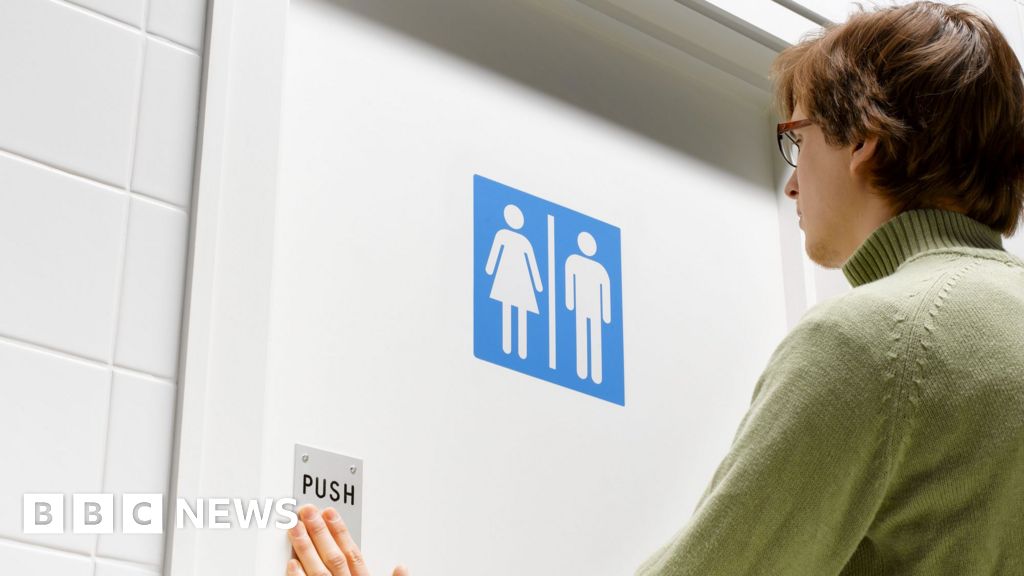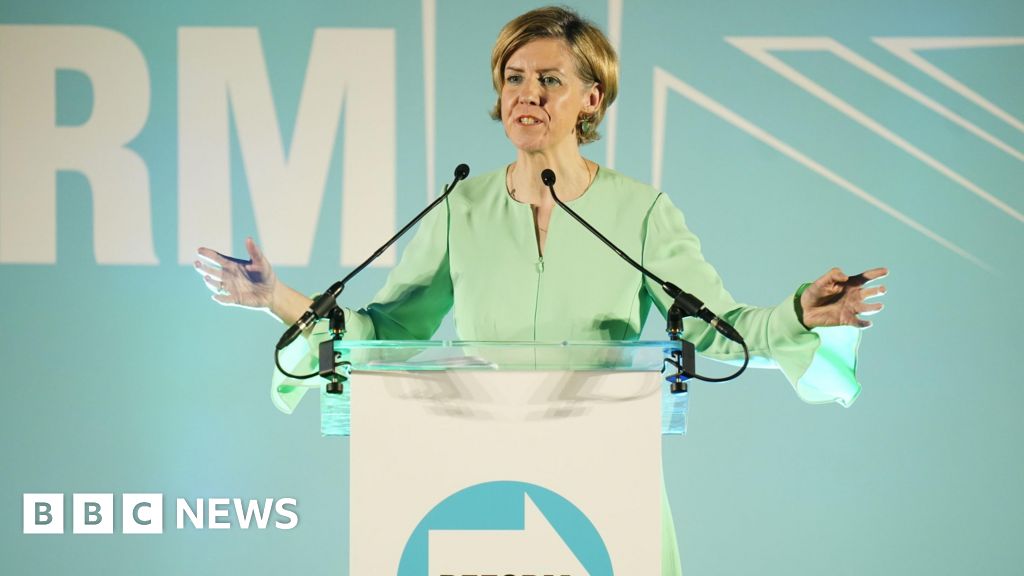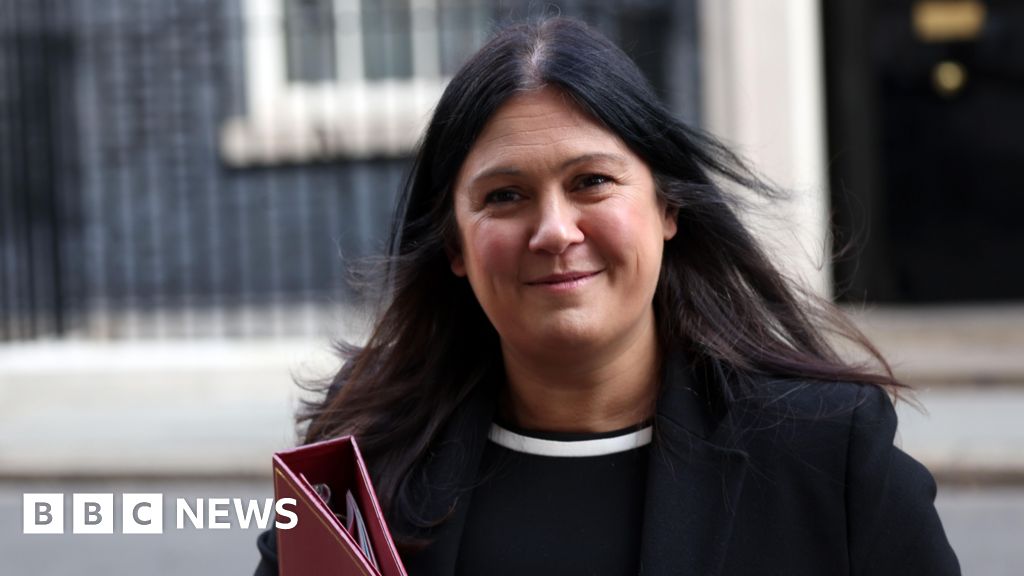ARTICLE AD BOX
By The Visual Journalism Team
BBC News
Prime Minister Boris Johnson has carried out a reshuffle of his cabinet, moving several key ministers including Dominic Raab and Gavin Williamson.
This is the second major reshuffle since Mr Johnson became leader of the Conservative party and took over as prime minister from Theresa May in July 2019. The last one took place in February 2020.
Who's in what job? Here's a guide to the people that make up Mr Johnson's cabinet, with the latest new faces and who's changed places. Some posts are still being confirmed.
-
Boris Johnson became prime minister in December 2019 and immediately faced the UK's looming exit from the EU and the start of the coronavirus pandemic.
The health crisis has been described as perhaps the biggest challenge the country has faced since World War Two.
Mr Johnson’s election win secured him the largest Tory majority in Parliament since 1987.
He succeeded Theresa May as prime minister. His only previous cabinet post was foreign secretary, which he quit over differences with Mrs May over Brexit.
Since being at 10 Downing Street, he married his fiancee Carrie Symonds and has become a father again.
-
Rishi Sunak was appointed chancellor during the 2020 reshuffle, following the resignation of Sajid Javid.
Within weeks, he faced the challenge of steering the UK economy through the coronavirus pandemic and national lockdown.
Under his guidance, the government has had to spend many billions of pounds to fight coronavirus and protect the economy.
Seen as rising star, and often touted as a future prime minister, was previously a successful businessman, co-founding a large investment firm.
Mr Sunak is married to Akshata Murthy, daughter of an Indian billionaire. The couple lived in California for a number of years before coming back to the UK.
-
Priti Patel was appointed home secretary in Boris Johnson’s first cabinet and has kept her position since then.
A prominent Brexiteer, Ms Patel had previously argued that Mr Johnson was the only person who could save Brexit and the Tories.
She had previously served as Theresa May's international development secretary, until she was forced to quit following a row over unauthorised meetings with Israeli politicians.
She was first elected to the seat of Witham, Essex, in 2010, after working for several years in PR for the Conservative Party, as well as lobbying for tobacco and alcohol industries.
-
Liz Truss replaces Dominic Raab as foreign secretary.
She moves from her role as international trade secretary.
She was previously in Theresa May’s cabinet as the first female lord chancellor between 2016 and 2017. She served as environment secretary in David Cameron's government from 2014-16.
Ms Truss was elected to Parliament in 2010 after serving as deputy director of think tank Reform.
In a widely-publicised speech in June 2018, she attacked cabinet colleagues for demanding more money, saying it would only lead to higher taxation.
-
Stephen Barclay has replaced Michael Gove as Chancellor of the Duchy of Lancaster and minister for the Cabinet Office.
Mr Barclay previously served as Brexit secretary under Theresa May and Boris Johnson - a position which became defunct at 11.01pm on 31 January as the UK left the EU.
He was elected MP for North East Cambridgeshire in 2010.
-
Former Brexit negotiator Lord David Frost remains in the cabinet.
He was drafted in by Boris Johnson in February to take charge of forging a new relationship with the EU.
The former diplomat replaced Michael Gove as co-chair of a committee on implementing the Brexit withdrawal deal.
-
The MP for Berwick-upon-Tweed has replaced Liz Truss as international trade secretary.
She returns after losing her place in the cabinet when the Department for International Development was scrapped.
Ms Trevelyan was promoted to a role as Armed Forces minister shortly after the Conservatives’ 2019 election victory.
An outspoken Brexiteer, she resigned from a previous junior ministerial role in November 2018 in protest at the Brexit withdrawal deal negotiated by former PM Theresa May.
The former chartered accountant has also served on the Public Accounts Committee, responsible for scrutinising government spending.
-
Sajid Javid was appointed health secretary in June, following the resignation of Matt Hancock who stepped down for breaking social distancing guidelines.
Mr Javid previously served in a Boris Johnson cabinet as chancellor in 2019, but only lasted six months following tensions with the prime minister's then-advisor Dominic Cummings.
He joined the health department at a critical time, as the country again faced rising cases of coronavirus amid the global pandemic.
The MP for Bromsgrove since 2010 was born in Rochdale in 1969, one of five sons of parents who had moved to the UK from Pakistan.
-
Nadhim Zahawi has been promoted to education secretary, replacing Gavin Williamson.
He was previously a business minister and minister for vaccines.
Mr Zahawi was elected as Conservative MP for Stratford-on-Avon in May 2010.
Prior to his career as an MP, he co-founded the market research firm YouGov.
-
Nadine Dorries has been promoted to culture secretary, replacing Oliver Dowden.
She was previously a minister for health and social care.
Ms Dorries was elected as the Conservative MP for Mid Bedfordshire in May 2005.
In November 2012, she was temporarily suspended from the Conservative party after taking part in reality TV programme I'm A Celebrity Get Me Out Of Here.
Before she entered politics Ms Dorries trained as a nurse, then went on to set up her own business and later became a director at BUPA.
-
Kwasi Kwarteng remains as business secretary after his appointment in January.
The MP for Spelthorne in Surrey, seen as a rising star on the right of the party for many years, had been energy minister since July 2019.
He was previously a junior Brexit minister.
Before becoming an MP in 2010, he worked as an analyst in financial services.
-
Michael Gove is the cabinet minister with the most experience and moves to housing to take responsibility for "levelling up"- the programme to help communities who feel they have been left behind.
Mr Gove became environment secretary in June 2017 and proved a key advocate of Theresa May’s Brexit deal, while other Brexiteer cabinet ministers resigned.
In 2016, he famously scuppered the leadership hopes of his friend Boris Johnson, by announcing his own candidature on the morning of Johnson's own campaign launch. He lost out to Boris Johnson in the Conservative leadership campaign in summer 2019.
Mr Gove was a key ally of former Prime Minister David Cameron and has served as MP for Surrey Heath since 2005.
He made his name as a radical education secretary, bringing in major changes to exams and the curriculum and battling teaching unions during his four years in the role.
-
Therese Coffey remains as work and pensions secretary.
The former environment minister was initially appointed to the role after Amber Rudd resigned over the government's approach to Brexit.
Ms Coffey has previously served in a number of roles including Commons deputy leader and assistant whip.
She backed Remain in the 2016 referendum and voted in favour of Theresa May's Brexit deal.
However, she later spoke about the need to honour the referendum result and supported Boris Johnson's Tory leadership bid.
-
Dominic Raab moves from the foreign office to replace Robert Buckland as justice secretary.
Mr Raab faced criticism and calls for his resignation over his handling of the Afghanistan crisis.
He was appointed foreign secretary and first secretary of state in Boris Johnson's first cabinet.
A staunch Brexiteer, Mr Raab served as a justice minister in 2015, but was sacked by Theresa May when she became prime minister the following year. He made a return as Brexit secretary in July 2018 after the resignation of David Davis, but quit only months later in opposition to Mrs May’s Brexit deal.
Mr Raab started his career as an international lawyer, before joining the Foreign Office as a diplomat.
-
Grant Shapps remains transport secretary. The former international development minister was appointed to transport in July 2019.
He was once seen as a high-flyer in the Tory party until he resigned following allegations he ignored warnings about bullying when he was party co-chairman.
He was born in Watford and educated at a local grammar school, before going on to Manchester Polytechnic to study business and finance. He later set up his own successful printing business.
Mr Shapps was elected MP for Welwyn Hatfield in Hertfordshire in 2005.
-
George Eustice originally replaced Theresa Villiers as environment secretary in the 2020 reshuffle.
Mr Eustice previously held ministerial posts under David Cameron and Theresa May, but resigned in 2019 in protest the latter's promise to allow MPs a vote on delaying Brexit if her deal failed to pass the House of Commons.
He has represented the Cornish constituency of Camborne and Redruth since 2010.
-
Brandon Lewis remains as Northern Ireland secretary.
The former Conservative Party chairman rejoined cabinet under Boris Johnson as home office minister in July 2019.
Previous positions include minister without portfolio, minister for housing and and minister for immigration.
A former barrister and leader of Brentwood Borough Council, Essex, Mr Lewis has been MP for Great Yarmouth since 2010.
-
Businessman Alister Jack was elected MP for Dumfries and Galloway in 2017 and has supported what he calls "a successful Brexit for Scotland".
He founded tent-hire and self-storage companies and is also a dairy farmer.
His constituency includes the busiest ferry-port serving Northern Ireland.
He was appointed assistant government whip in February 2019.
-
Simon Hart remains as Welsh secretary.
Mr Hart has represented Carmarthen West and South Pembrokeshire since 2010.
He previously served as a junior minister in the Cabinet Office.
-
Baroness Evans was appointed Lords Leader in 2016, her first ministerial role since being ennobled by David Cameron in 2014.
She attended London's Henrietta Barnett School and Cambridge University, where she studied social and political sciences.
She went on to become deputy director of the Conservative research department.
She was previously deputy director of the centre-right Policy Exchange think-tank.
She was also director of the New Schools Network, the organisation set up by Rachel Wolf, which runs the free schools programme.
-
Oliver Dowden has been appointed Conservative Party co-chairman and will attend cabinet as minister without portfolio.
Prior to his appointment as culture secretary in the last cabinet, Mr Dowden had been a minister in the Cabinet Office - playing a key role working with No 10 in implementing government policy.
Before becoming an MP, the Cambridge-educated law graduate worked in public relations and cut his teeth in the Conservative Research Department.
He then worked as an adviser to David Cameron, becoming his deputy chief of staff in Downing Street. He subsequently received a CBE for his services.
-
Alok Sharma is president of the UN COP26 climate conference, which takes place in Glasgow in November.
He had also been business secretary until January, when he left the role to focus full-time on the summit.
The MP for Reading West backed Boris Johnson for prime minister and joined the cabinet in July 2019.
Prior to being elected in 2010, he qualified as a chartered accountant and worked in banking.
-
Nigel Adams becomes Minister of State (Minister without Portfolio) in the Cabinet Office, having been Minister for Asia.
Mr Adams supported Brexit and backed Boris Johnson in the 2019 Conservative leadership election.
He has held an number of ministerial positions and has served as a government whip.
He was first elected in May 2010 as the Conservative MP for Selby and Ainsty, the community where he grew up.
-
Boris Johnson's chief enforcer, in theory, has had an easier job since the party won a large majority.
But Mr Spencer is no stranger to the role, having served in the whips' office since 2016. He has also been given the role of parliamentary secretary to the Treasury.
From farming family, Mr Spencer did not attend Oxbridge, unlike many of his colleagues. He attended Shuttleworth Agricultural College before joining the family farming business.
He started his political career as a local councillor and won the Sherwood seat from Labour in the 2010 general election.
Note: BAME (Black, Asian and Minority Ethnic) is a term widely used in the UK to describe people of non-white descent, as defined by the Institute of Race Relations.
Click here if you cannot see the Cabinet Guide
Mr Johnson sacked four members of the cabinet as part of his latest reshuffle: Gavin Williamson, who was education secretary; Robert Jenrick, who was housing secretary; Robert Buckland, who was justice secretary; and Amanda Milling, who was Conservative Party co-chair.
Dominic Raab, who had been the foreign secretary, was demoted to justice secretary.
According to data from ConservativeHome, Mr Williamson was the least popular member of the cabinet with Conservative party members. Liz Truss, who has been promoted to foreign secretary from international trade secretary, was the most popular.

 3 years ago
127
3 years ago
127








 English (US) ·
English (US) ·